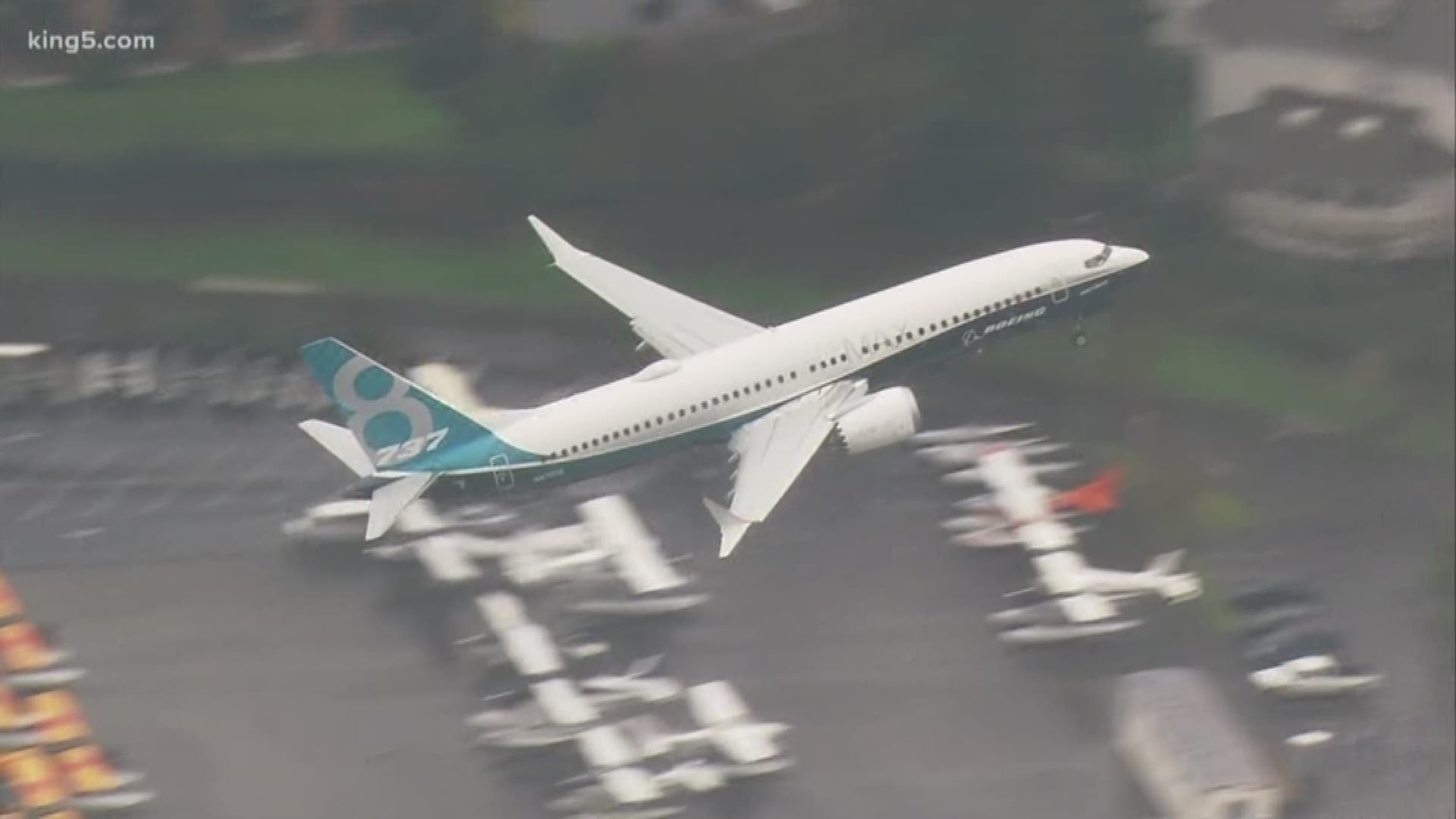Boeing is apologizing after releasing a trove of documents detailing internal messages by employees about the embattled 737 MAX.
In the messages, employees talked about misleading regulators about problems with Boeing's MAX simulators in 2017 and 2018. In one exchange, an employee told a colleague they wouldn't let their family ride on a 737 MAX.
Some of the messages also contain provocative language and mock members of the Federal Aviation Administration.
“I’m not hopeful. The FAA inspector was briefed by (blank) and was negative from the get-go," wrote one employee. "Whining about the numbers of DRs, not Boeing ‘quality’ etc… But this is what happens when people fold when they should stand firm – integrity should not be cast aside when pressured.”
Employees also complained about Boeing's senior management, the company's selection of low-cost suppliers, wasting money, and the MAX.
“This airplane is designed by clowns who in turn are supervised by monkeys,” one employee wrote.
Names of the employees who wrote the emails and text messages were redacted.
"These communications do not reflect the company we are and need to be, and they are completely unacceptable. That said, we remain confident in the regulatory process for qualifying these simulators," Boeing said in a statement Thursday.
Boeing says they "proactively" brought these communications to the FAA and Congress in December in an effort to continue transparency.
House Transportation Committee Chair Rep. Peter DeFazio, D-Ore., who is leading one of the congressional investigations into Boeing, called the messages "incredibly damning."
"They paint a deeply disturbing picture of the lengths Boeing was apparently willing to go to in order to evade scrutiny from regulators, flight crews, and the flying public, even as its own employees were sounding alarms internally," said DeFazio.
DeFazio said the documents detail “some of the earliest and most fundamental errors in the decisions that went into the fatally flawed aircraft.” DeFazio and other critics have accused the company of putting profit over safety.
The company said it was considering disciplinary action against some employees.
"We regret the content of these communications, and apologize to the FAA, Congress, our airline customers, and to the flying public for them. We have made significant changes as a company to enhance our safety processes, organizations, and culture," Boeing said in their statement.
The MAX has been grounded worldwide since March, after two crashes that killed 346 people. Boeing is still working to update software and other systems on the plane to convince regulators to let it fly again. The work has taken much longer than Boeing expected.
An FAA spokesman said the agency found no new safety risks that have not already been identified as part of the FAA’s review of changes that Boeing is making to the plane. The spokesman, Lynn Lunsford, said the simulator mentioned in the documents has been checked three times in the last six months.
"Any potential safety deficiencies identified in the documents have been addressed,” he said in a statement.
The grounding of the MAX will cost the company billions in compensation to families of passengers killed in the crashes and airlines that canceled thousands of flights. Last month, the company ousted its CEO and decided to temporarily halt production of the plane in mid-January, a decision that is rippling out through its supplier network.

